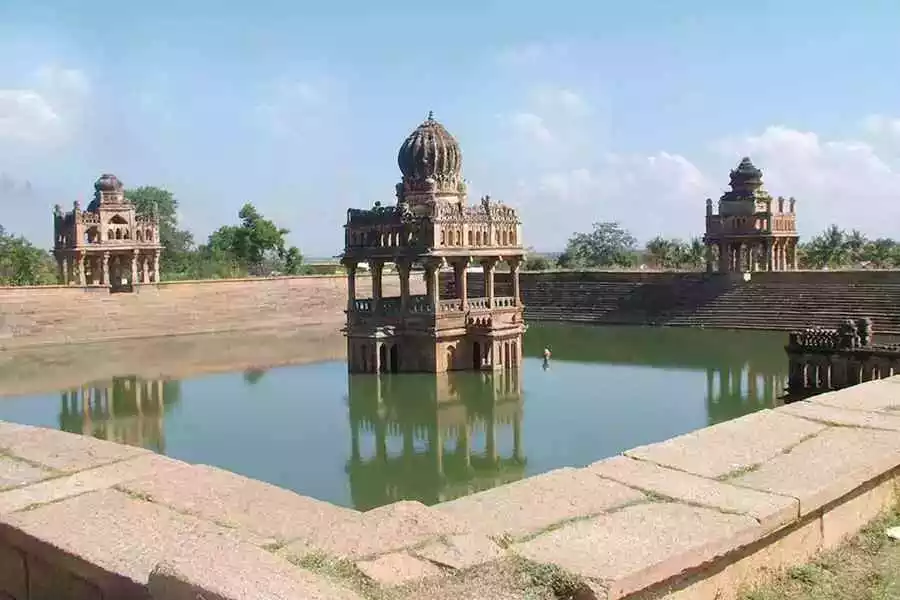Exploring Davanagere: A Comprehensive Guide
Introduction
Davanagere, often referred to as the "Manchester of Karnataka," is a district in the Indian state of Karnataka. This guide provides an in-depth look at Davanagere, covering its demography, culture, geography, cuisines, history, notable poets/authors, and administration.
Demography of Davanagere
Davanagere district, with a population of over 1.9 million, is a melting pot of diverse communities and cultures. The population comprises mainly Kannadigas, with significant communities of Telugu and Urdu speakers. The literacy rate is impressive, with a large percentage of the population being educated.
Population Breakdown
- Total Population: 1,946,905
- Male Population: 991,604
- Female Population: 955,301
- Urban Population: 31.3%
- Rural Population: 68.7%
Cultural Heritage
Davanagere is rich in cultural heritage, with a tapestry woven from various traditions and customs. The district celebrates numerous festivals, including Ugadi, Deepavali, and Eid, reflecting its multi-religious society. Folk dances like Dollu Kunitha and traditional music form an integral part of the cultural fabric.
Festivals
- Ugadi: The Kannada New Year, marked by vibrant celebrations and traditional rituals.
- Deepavali: The festival of lights, celebrated with fireworks and sweets.
- Eid: Celebrated by the Muslim community with prayers and feasts.
Folk Arts
- Dollu Kunitha: A vigorous drum dance performed by men.
- Veeragase: A dance-drama depicting the heroism of ancient warriors.
Geographic Overview
Davanagere is strategically located in the central part of Karnataka, making it an important hub for commerce and transport. The district spans an area of 5,926 square kilometers, characterized by fertile plains and rolling hills. The Tungabhadra River and its tributaries provide essential water resources for agriculture.
Key Geographical Features
- Area: 5,926 sq. km
- Rivers: Tungabhadra, Kumudvati
- Climate: Tropical, with distinct wet and dry seasons
Cuisines of Davanagere
The culinary landscape of Davanagere is as diverse as its culture. It is famous for its unique dishes, such as Benne Dosa, a buttery, crispy dosa that has become a staple breakfast item. The district also boasts a variety of sweets and savory snacks.
Signature Dishes
- Benne Dosa: A rich, buttery dosa served with coconut chutney and sambar.
- Davanagere Benne Gulab Jamun: A sweet delicacy soaked in sugar syrup.
- Pav Bhaji: A spicy vegetable mash served with buttered bread rolls.
Historical Background
Davanagere's history is marked by its role as a prominent trading center. Originally part of the Hoysala and Vijayanagara empires, it later became an important hub for cotton and grain trading during the British era. The district has several historical sites that reflect its rich past.
Key Historical Events
- Hoysala Dynasty: Established significant trade routes and cultural developments.
- Vijayanagara Empire: Contributed to the architectural and economic growth of the region.
- British Era: Emerged as a major trading center for cotton and grain.
Notable Poets and Authors
Davanagere has produced several renowned poets and authors who have significantly contributed to Kannada literature. Their works often reflect the district's cultural and social ethos.
Prominent Literary Figures
- P. Lankesh: A prominent writer and journalist known for his bold literary works.
- Chandrashekhara Kambara: A celebrated poet, playwright, and folklorist.
- Siddalingaiah: A leading Dalit poet and activist whose works highlight social issues.
Administrative Structure
Davanagere district is well-administered with a structured system in place to manage its various functions. The district is divided into several taluks for efficient governance.
Administrative Divisions
- Taluks: Davanagere, Harihara, Jagalur, Harapanahalli, Honnali, Channagiri
- District Headquarters: Davanagere city
Local Governance
- District Commissioner: The administrative head responsible for overall governance.
- Zilla Panchayat: Local body for rural governance and development.
- Municipal Corporations: Urban local bodies managing city infrastructure and services.
Education and Institutions
Davanagere is home to several prestigious educational institutions, contributing to its high literacy rate. These institutions provide quality education and attract students from various parts of the state.
Major Educational Institutions
- Davangere University: Offers a wide range of undergraduate and postgraduate programs.
- Bapuji Institute of Engineering and Technology: Known for its engineering and technology courses.
- J.J.M. Medical College: A leading medical college providing excellent healthcare education.
Economy and Industry
The economy of Davanagere is primarily driven by agriculture, textiles, and education. The district is known for its cotton mills, which have earned it the nickname "Manchester of Karnataka."
Economic Sectors
- Agriculture: Major crops include rice, maize, and cotton.
- Textiles: Numerous cotton mills and textile factories.
- Education: Significant contribution from educational institutions and associated businesses.
Transportation and Connectivity
Davanagere is well-connected by road, rail, and air, making it accessible from various parts of the country. The efficient transportation network supports both commerce and tourism.
Transport Facilities
- Road: National Highway 48 passes through Davanagere, connecting it to major cities like Bangalore and Mumbai.
- Rail: Davanagere railway station is a major junction on the South Western Railway.
- Air: The nearest airport is Hubli Airport, located about 140 kilometers away.
Suggested Diagram
To better understand the administrative structure of Davanagere, we can visualize it using a mermaid diagram.
Conclusion
Davanagere district, with its rich cultural heritage, strategic geographic location, and robust economy, is a significant region in Karnataka. From its diverse population and vibrant festivals to its educational institutions and efficient administrative structure, Davanagere offers a unique blend of tradition and modernity. Whether you are interested in exploring its historical sites, savoring its unique cuisine, or understanding its economic landscape, Davanagere provides a comprehensive experience for residents and visitors alike.
